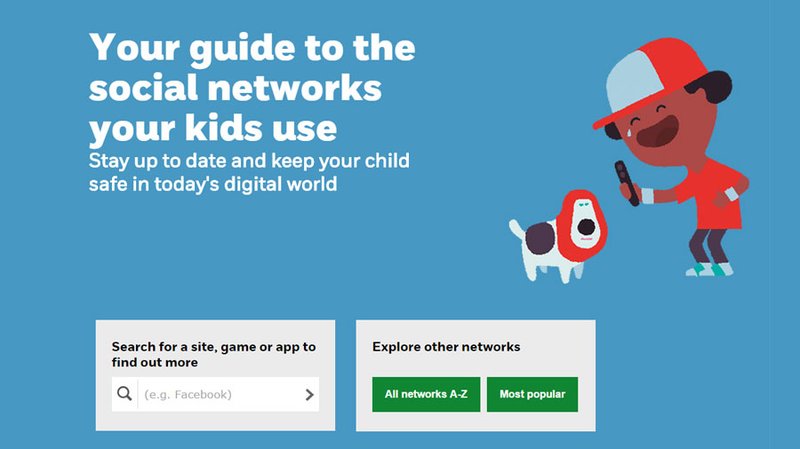Safeguarding Information
On this page we have gathered together various resources, links and information to help parents and carers support their children to remain safe
Family Toolbox
Family Toolbox is a free online hub for parents and carers. It has been designed with families across Wirral and has information about everyday family life. A directory of services that can help and a what’s on section to see what is happening across Wirral.
Branch
Branch , is an online mental wellbeing hub for children and young people in Wirral. Everyone has ups and downs in their mental wellbeing, Branch is a website that helps children and young people in Wirral find the support that works for them. Complete the questionnaire on Branch to find and access support. Branch explainer video
E-Safety
We send out a monthly Newsletter to parents to support with E-Safety, technology, websites, filters, apps, terminology and more. Click here to go to our Letters and Newsletters page and scroll down to E-Safety section
Parental Controls
Each year we send out an updated booklet for parents with an overview of controls to set up a safer online environment. Please click here to download the latest version
NSPCC
Click here to visit the NSPCC website for a wealth of materials
NSPCC - Report Abuse in Education
NSPCC have launched a dedicated helpline for children and young people who have experienced sexual harassment or abuse at school, and for worried adults and professionals that need support and guidance. Click here to visit the webpage
Young people and adults can contact the NSPCC helpline, Report Abuse in Education on 0800 136 663 or email help@nspcc.org.uk
NSPCC - PANTS
You’ve probably already talked to your child about things like crossing the road safely. But have you spoken to them about how to stay safe from sexual abuse? We know it’s a conversation no parent wants to have, but we believe it can feel just as natural, and be just as easy, as the road safety chat.
We call it talking PANTS. From P through to S, each letter gives an important message for children as young as four to help them stay safe.
Click here to download the parent information guide
Click here to visit the NSPCC PANTS website - Resources, videos, guides and more
Social Media - Net aware
Find it hard to keep up with the latest social network sites? Do you know the age restrictions of sites such as Instagram or Facebook? What's the difference between a Tweet, a blog, a post and a like? This handy guide allows you to search for each network site and gives you all the key information in one place, such as terminology, age restrictions and how to set parent controls
https://www.net-aware.org.uk/#
Social Media - Share aware
The NSPCC have also produced a series of videos and guides to help parents with their children's online world - from drafting family agreements to helping children understand the dangers of sharing personal information.
You may have seen the advert on TV - 'I've Seen Your Willy' is a short cartoon video from the NSPCC helping children understand how taking and sharing pictures online can be really harmful. Click here to view the video.
Internet safety -useful parent links
The following links to various websites will give you more information on keeping your children safe online.
Being E-safe with your Children
https://hi-impact.co.uk/online-safety/
Internet Matters
https://www.internetmatters.org/advice/
Commonsense Media Guides
https://www.commonsensemedia.org/lists/safe-chat-rooms-and-social-sites-for-kids#little-kids
Google Tools
Screen Time
The Chief Medical Officer for the UK has published guidance on screen-based activities.
The guidance has an infographic which helps parents and carers think about the challenges of managing their children's screen use. Click the poster on the right to enlarge.
ThinkuKnow (Advice for staying safe online, on a phone, tablet or computer)
Thinkuknow provides advice from the National Crime Agency (NCA) on staying safe online, in a collection of guides for parents and games and activities for children
Parent info
Parent Info is a collaboration between Parent Zone and NCA-CEOP, providing support and guidance for parents from leading experts and organisations.
Home Alone
Deciding if your child is ready to be left home alone can be a tricky decision.
There are lots of things to think about. Plus, there are no hard and fast ‘home alone’ rules or laws because every child is different. This NSPCC link helps you make up your mind about whether leaving your child home alone is a good idea, as well as tips for choosing appropriate childcare if you decide it's not.
Childnet
Childnet offers a toolkit to support parents and carers of children of any age to start discussions about their online life, to set boundaries around online behaviour and technology use, and to find out where to get more help and support
Safer internet
UK Safer Internet Centre has tips, advice, guides and other resources to help keep children safe online, including parental controls offered by home internet providers and safety tools on social networks and other online services
Let’s talk about it
Let’s Talk About It has advice for parents and carers to keep children safe from online radicalisation
PACE - Parents Against Child Exploitation
Pace is a leading specialist charity that brings the parent perspective to tackling child exploitation. Their expertise comes from years of experience of working with parents, which is reflected in their training courses and approach to multi-agency working.
Pace seeks to:
Enable parents and carers to safeguard and stop their children being exploited.
Provide evidence and specialist advice in order to demonstrate to partners that parents and carers have an essential safeguarding role.
Work with parents and partners to disrupt and bring perpetrators to justice.
Influence national and local policy and practice to reflect the active safeguarding role of parents and the impact on families of child exploitation.
Sustain long term change by training partners in the active role of parents and carers safeguarding their children
Well being hub
The Health and Well-being Hub is a safe and confidential place to discuss health related topics including :
healthy eating, weight management, sleep behaviour, bed wetting, behavioural concerns, emotional well-being, confidence/self-esteem and lifestyle advice, as well as signposting and referrals to other services if needed.
The 0-19 service has launched new drop in clinics available across the Wirral for 5-19 year olds.
Young people and their parents are able to drop in to any of the clinics that are available regardless of where a young person lives or goes to school.
Click here to find details of times and locations of the Hubs
CAMHS
- Advice line for anyone who is supporting young people to call for advice about concerns they might have in regards to a child or Young person’s mental health.
Mental Health and Stress in children and young people
Click here to download a leaflet used at a parents workshop for Stress Management for pupils
Click here to download a leaflet with advice for supporting children with coping with stress
Parent’s guide to childhood anxiety
Click here to be redirected to the website ‘The Expert Parent's Guide to Childhood Anxiety’ for advice and resources for supporting with anxiety in children
Be Kind to yourself
Why it is important to be kind to yourself
This webinar covers the importance and benefits of being kind to ourselves. Watch
Wellbeing
It is really important we care for ourselves, so that we are able to better care and support those around us. This website is full of advice, articles and videos to support our own wellbeing. Click here
Wirral safeguarding children partnership
Wirral has its own website containing key information, contact details and resources to support parents and carers. This can be accessed by clicking here
















